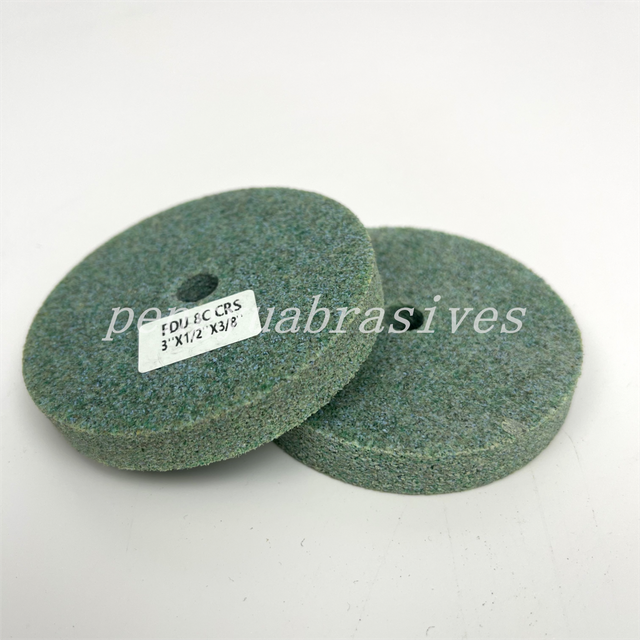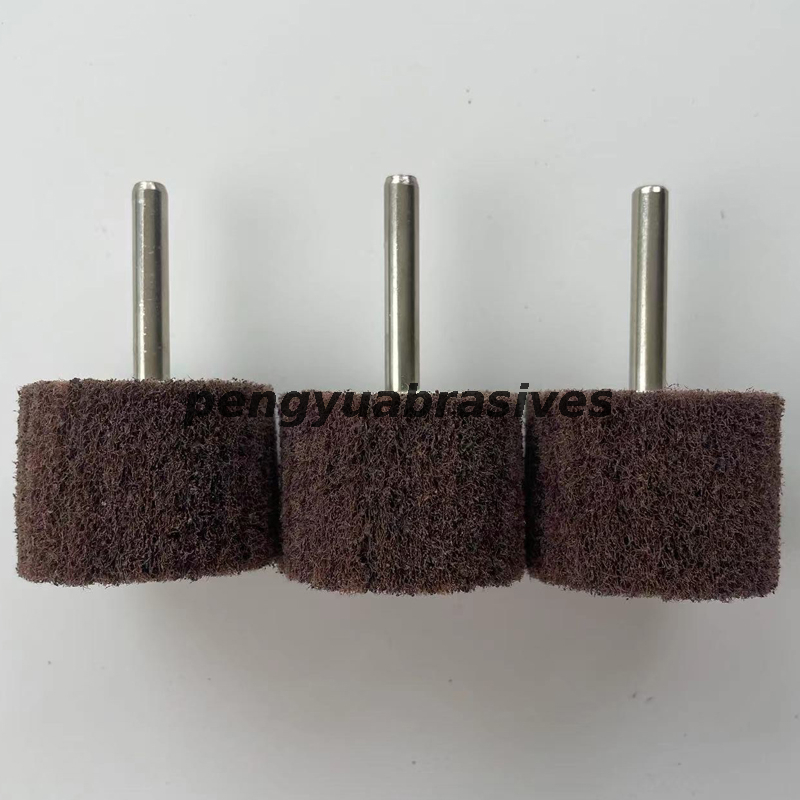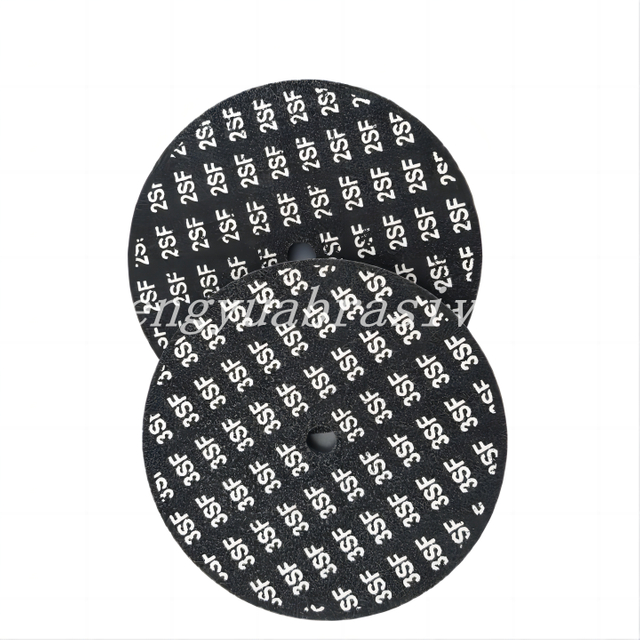Views: 0 Author: Site Editor Publish Time: 2025-05-13 Origin: Site








Have you ever struggled to get the perfect surface finish? Maybe you used the wrong abrasive tool. That's more common than you think. Grinding wheels and flap wheels look similar, but they serve different goals. Using the wrong one? That could waste time, money—or worse—ruin your project.
In this post, you'll learn how to tell flap wheels and grinding wheels apart. We'll break down their structure, function, use cases, and performance. By the end, you'll know which one belongs in your toolkit—and why.
A flap wheel is made of multiple overlapping pieces of abrasive material called "flaps." These flaps are arranged like a fan around a hub. The flaps wear away gradually, exposing fresh abrasive underneath—this keeps the tool sharp for longer.
Flexible and adaptable to curves and contours
Delivers smoother, more consistent finishes
Ideal for polishing, deburring, and blending welds
Great heat dissipation
Less aggressive material removal than grinding wheels
They come in various grit sizes and diameters, which makes them suitable for both intricate tasks and larger surfaces.

Unlike flap wheels, a grinding wheel is a solid disc made by bonding abrasive grains together. It's tough, rigid, and built for heavy-duty tasks.
Designed for aggressive material removal
Rigid and flat surface
Shorter lifespan when used on contours
Excellent for shaping and sharpening tools
Often used in bench or angle grinders
Materials suitable for grinding wheels include:
Hardened steel
Cast iron
Tools and dies
Hard alloys
Grinding wheels are more about power and speed—they don't care much about finesse.

| Feature | Flap Wheel | Grinding Wheel |
|---|---|---|
| Structure | Overlapping flaps of abrasive material | Solid abrasive compound bonded into a disc |
| Flexibility | Highly flexible | Rigid and firm |
| Material Removal Rate | Moderate | High |
| Surface Finish | Smooth and consistent | Rougher, needs finishing |
| Lifespan | Longer on delicate tasks | Longer on heavy-duty tasks |
| Heat Management | Good | Fair to Poor |
| Noise & Vibration | Low | High |
| Applications | Polishing, blending, rust/paint removal | Cutting, shaping, tool sharpening |
| Compatibility | Angle grinders, die grinders | Bench grinders, pedestal grinders |
If your project requires precision and a clean finish—go with a flap wheel. It's excellent for:
Blending weld seams: You'll get a consistent finish without gouging.
Polishing stainless steel: Helps avoid discoloration.
Contour work: The flexible flaps hug curved surfaces easily.
Rust and paint removal: Safe on delicate substrates.
Don't push down too hard while using it—just let it glide. Too much pressure shortens the lifespan and might damage the surface.

Choose a grinding wheel if you need to:
Remove a lot of material fast
Shape hard metals
Sharpen cutting tools
Prepare metal for welding
They're built for tough tasks. But they can leave behind rough surfaces—so consider following up with a flap wheel for a better finish.

Let's look at general performance metrics for flap wheels and grinding wheels.
| Metric | Flap Wheel (Avg.) | Grinding Wheel (Avg.) |
|---|---|---|
| Removal Rate (g/min) | 8–12 g/min | 20–35 g/min |
| Finish (Ra, µm) | 0.4–1.2 | 2.5–5.0 |
| Noise Level (dB) | 70–85 | 85–100 |
| Average Lifespan (minutes) | 40–60 | 20–40 |
| Flexibility Rating (1–10) | 9 | 3 |
| Task | Best Choice | Reason Why |
|---|---|---|
| Removing weld spatter | Flap Wheel | Delivers smooth finish without damaging adjacent areas |
| Sharpening chisels | Grinding Wheel | Requires rigidity and aggressive cutting |
| Polishing stainless steel | Flap Wheel | Avoids heat spots and discoloration |
| Deburring metal parts | Flap Wheel | Flexible flaps conform to irregular shapes |
| Shaping large metal edges | Grinding Wheel | High torque removal and faster cutting |
| Removing rust/paint | Flap Wheel | Gentle on surface, won't overcut |
Working with both tools demands attention. Follow these basic safety tips:
Always use the recommended rotational speed
Avoid high pressure—it shortens tool life
Wear gloves, goggles, and ear defenders
Ensure the flap wheel is securely mounted
Use grinding oil to reduce thermal load and tool wear
Always check for cracks before using
Match the wheel RPM with your grinder
Keep flammable materials far from the work area
Use face shields, not just safety glasses
Don't use wheels past expiration date
Both tools generate dust and noise—use a respirator and earmuffs if working long hours.
Choosing between a flap wheel and a grinding wheel isn't just technical—it affects your bottom line. If you're after flexibility, consistency, and clean finishes, flap wheels win the day. Need brute force and heavy removal? Grinding wheels have your back.
At Pengyu, we specialize in abrasive solutions tailored to your needs. Whether it's finishing or shaping, we've got the tools that work harder—so you don't have to. Ready to upgrade your performance? Let Pengyu help you pick the perfect wheel today.
Q: What's the main difference between a flap wheel and a grinding wheel?
A: A flap wheel uses layered abrasive flaps for smooth finishing. A grinding wheel is solid and removes material aggressively.
Q: Can I use a flap wheel for heavy stock removal?
A: Not ideal. Flap wheels are better for light removal and polishing. Use grinding wheels for heavy-duty tasks.
Q: Are flap wheels safer to use than grinding wheels?
A: They usually produce less vibration and noise. However, both need safety gear like gloves and goggles.
Q: What grit size should I choose for a flap wheel?
A: Coarser grits (40-60) remove more material. Finer grits (80+) give smoother finishes. Match grit to your goal.
Q: How long does a flap wheel typically last?
A: Depends on usage, pressure, and material. With proper technique, they can last 40–60 minutes or more per job.